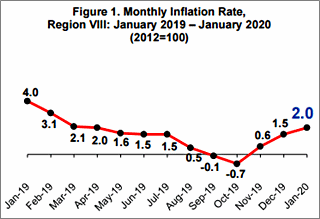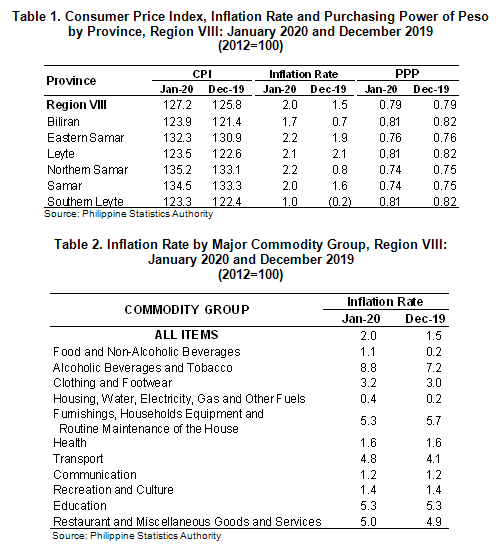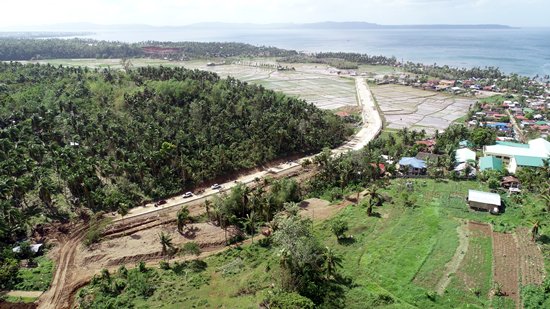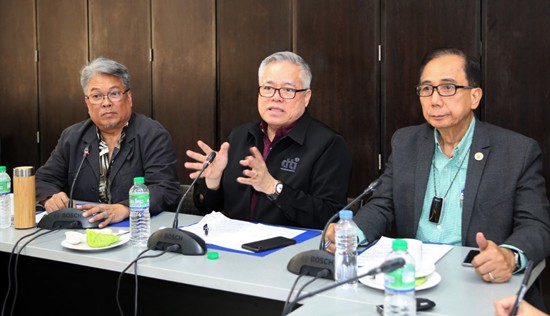ACT calls for
release of nationwide reading inventory report
Press Release
February 18, 2020
QUEZON CITY – Amid
reports on the reading proficiency issues of pupils in Bicol, the
Alliance of Concerned Teachers (ACT) Philippines calls on the
Department of Education (DepEd) to make public the detailed report
of the reading inventory done by the Philippine Informal Reading
Inventory (Phil-IRI) in every region nationwide. The group said that
DepEd Sec. Leonor Briones ‘could be right in saying that reports on
struggling readers in Bicol is unfair for the Bicolanos as the
situation could be true in the whole of the country, or worse in
poorer regions and localities.’
“Especially as our call
for the review of the K-12 program has finally gained attention from
the government, all indicators should be laid down to have an honest
assessment of our educational system. The development of our
students is a national concern,” said Joselyn Martinez, ACT
Philippines Chairperson.
Martinez advised the
education agency ‘not to be onion-skinned’ on the issue and
truthfully identify and address the factors that contribute to the
declining quality of Philippine education if it is sincere in its
‘no learner left behind’ slogan. She also warned against the
‘simplistic’ tendency to put the blame on the teachers’ capabilities
and dedication to teach pupils how to read, but to look at the whole
situation instead.
Congested K-12 Curriculum
Martinez raised the
practical problem of less time allocated to honing the reading
skills of students with the inclusion of more learning areas in the
Grades 1 and 2 curriculum of the K to 12 program, compared to past
education curricula implemented in the country. Under the K to 12
program, 40 to 50 minutes is allocated for each of the 7 subject
areas compared to 1 hour for each of the 5 subjects before.
“Our primary education
teachers lament of insufficient class hours dedicated to honing the
reading skills of students, which they are compelled to make up by
conducting special reading classes outside of regular class hours.
Unlike before where primary education gives significant attention to
the 3Rs—reading, writing, and arithmetic,” Martinez shared.
She said that teachers
have little elbow room to make adjustments based on the learners’
needs as the DepEd sets the daily lesson log, budget of work for
each subject everyday, and competencies that students are expected
to acquire, based on which teachers’ performance is evaluated.
Amidst these, Martinez said that DepEd further presses teachers to
be “more innovative and sacrificing.”
“Yet, teachers are made to
carry the brunt of this weakness in the curriculum as we are obliged
to work extra hours for special reading classes on school days and
even during summer vacation,” Martinez lamented.
Wanting Enabling
Environment
Martinez also stressed the
many government deficiencies in creating an enabling working and
learning environment for teachers and pupils as hindrances to
developing the reading competency of learners. She cited the large
class size and inadequate textbooks and other learning materials as
contributory to their difficulties in teaching pupils how to read.
“With years of the
government’s failure to fill in the shortages in the educational
system, the teachers carry everyday the burden of ensuring that ‘no
learner is left behind,’” said Martinez.
ACT also noted that with K
to 12 implementation came a host of paperworks and non-teaching
duties that take teachers away from their focus in teaching, while
teachers’ compensation does not measure to the volume and value of
their work.
“They always say that
quality education necessitates quality teachers. How can we have
quality teachers if they were always interrupted in their primary
focus and are not given quality pay?” asked Martinez.
Assessing K-12 from the
ground
ACT pushed for an
inclusive and comprehensive assessment of the K to 12 program that
would involve the participation of teachers, students, and parents.
“The DepEd and Congress
should be as keen in involving the very sectors that tackle the K to
12 program daily as they engage experts and the business sector in
the K to 12 review,” asserted Martinez.
She said that teachers and
parents alike are “very much concerned with what and how we train
our students as the future of our children and our nation is what’s
at stake.”
ACT pushes for the
reorientation and overhaul of the current education program towards
a nationalist, scientific, and quality mass education that is
responsive to the needs of national development.
Eastern Visayas
meets 2020 with 2.0% inflation rate
By
PSA-8
February 18, 2020
TACLOBAN CITY –
Eastern Visayas met 2020 with a 2.0 percent Inflation Rate (IR).
This IR is 0.5 percentage point higher compared with the 1.5 percent
IR in December 2019, but 2.0 percentage points lower than the
recorded 4.0 percent IR in the same period last year.
 The regional IR is 0.9
percentage point lower than the 2.9 percent national average
inflation rate in January 2020.
The regional IR is 0.9
percentage point lower than the 2.9 percent national average
inflation rate in January 2020.
All provinces in the
region registered higher inflation rates in January 2020 compared
with their figures in December 2019, except for Leyte, which had
retained its previous month’s inflation rate at 2.1 percent.
Northern Samar recorded the highest increase of 1.4 percentage
points, from 0.8 percent IR in December 2019 to 2.2 percent IR in
January 2020. The rest of the provinces registered increases ranging
from 0.2 percentage point to 1.2 percentage points. Southern Leyte
posted the lowest IR at 1.0 percent. Eastern Samar and Northern
Samar, meanwhile, recorded the highest IR during the month in review
at 2.2 percent.
Majority of the commodity
groups in the region exhibited higher IRs in January 2020 compared
with their rates in December 2019. Alcoholic beverages and tobacco
commodity group registered the biggest increase of 1.6 percentage
points, from 7.2 percent in December 2019 to 8.8 percent in January
2020. This can be attributed to the significant increase in the
index for tobacco to a double-digit inflation rate of 11.2 percent
in January 2020 from 8.9 percent in December 2019.
The heavily weighted food
and non-alcoholic beverages commodity group increased to 1.1 percent
in January 2020 from 0.2 percent IR in December 2019. Higher IRs
were noted in majority of the all food items. Fish index registered
the highest increase of 2.5 percentage points, from 6.5 percent in
December 2019 to 9.0 percent in January 2020. Rice and bread and
cereals indices continued to register deflations but at slower rate
of 5.2 percent and 3.7 percent, respectively.
IR for Transport commodity
group increased by 0.7 percentage point, from 4.1 percent in
December 2019 to 4.8 percent in January 2020. This can be attributed
to faster annual price hike in the index for operation of personal
transport equipment, from 10.5 percent in December 2019 to 14.6
percent in January 2020.
The commodity groups of
clothing and footwear, and housing, water, electricity, gas and
other fuels registered 0.2 percentage point increase in their IRs,
posting IRs at 3.2 percent and 0.4 percent, respectively, during the
reference month.
Restaurants and
miscellaneous goods and service commodity group inched up by 0.1
percentage point pushing its IR to 5.0 percent in January 2020.
On the other hand,
inflation rate for furnishings, household equipment and routine
maintenance of the house commodity group decreased by 0.4 percentage
point, from 5.7 percent in December 2019 to 5.3 percent in January
2020. This can be attributed to the lower inflation rate on goods
and services for routine household maintenance, from 6.7 percent in
December 2019 to 6.1 percent during the month in review.
Meanwhile, education;
health; recreation and culture; and communication commodity groups
retained their previous month’s inflation rates at 5.3 percent, 1.6
percent, 1.4 percent, and 1.2 percent, respectively.
The Purchasing Power of
Peso (PPP) of the region was recorded at P0.79 in January 2020. This
PPP implies that the goods and services worth P79.00 in 2012 is
worth P100.00 in January 2020.
The PPPs in all provinces
in the region weakened by P0.01 in January 2020 compared with their
figures in December 2019, except for Eastern Samar, which had
sustained its PPP at P0.76. Biliran, Leyte and Southern Leyte
recorded the strongest PPP at P0.81, followed by Eastern Samar at
P0.76. Northern Samar and Samar posted the weakest PPP at P0.74.

|

On-going
construction of Almeria bypass Road at Pob. Almeria, Biliran.
This is a multi-year project from 2018-2019 with a total
amount of P104,009,000.00. It involves the construction of
1.262 km. four (4) lanes roadway, 20.0 ln.m Bridge (4 lanes)
and slope protection to include payment of Road Right of
Way. |
DPWH-Bilran DEO
to implement P1B for FY 2020 infra projects
By
DPWH-Biliran
February 14, 2020
NAVAL, Biliran –
P1B is allocated to the Department of Public Works and Highways (DPWH)
Biliran District Engineering Office for the implementation of
various infrastructure projects in Biliran.
David P. Adongay Jr.,
District Engineer said the district office will implement a total of
75 projects this year based on the approved General Appropriations
Act (GAA) of FY 2020 DPWH Infrastructure Program.
According to Adongay,
P265.5M is allocated for the construction of slope protection
structures, asphalt overlay and reconstruction/ upgrading of damaged
paved roads, all under the Asset preservation Program.
Under the Network
Development Program, two road widening projects along Biliran
Circumferential Road will be implemented this year with a total
amount of P80M.
Meanwhile, P160M under the
Flood Management Program has been allocated for the construction and
rehabilitation of eight flood control projects.
The district office will
also implement a total of P160M under the Convergence and Special
Support Program. P85M is allocated for the construction of two
access roads leading to tourism destinations in convergence with the
Department of Tourism (DOT), one access road leading to trades and
industry worth P50M in convergence with the Department of Trades and
Industry (DTI), and one construction of Biliran Provincial Police
Office Building in convergence with the Philippine National Police
amounting to P25M.
Biliran DEO will also
implement a total of P400.8M for the implementation of various
infrastructure projects under the Local Infrastructure Program. This
includes the construction/upgrading of school buildings,
rehabilitation and construction of flood control structures and
seawalls, construction of multi-purpose buildings and construction/
rehabilitation of local roads and bridges.
Last year, the district
Office has been allotted with a budget amount of P1.2B for the
implementation of 92 projects.
According to Adongay, poor
performance of contractors also affects the performance of the DEO
in terms of physical accomplishment and disbursement.
“We cannot deny the fact
that there are big projects, undertaken by contractors, who cannot
immediately perform their obligations and commitments,” said Adongay.
“We are hoping that for
this year, those challenges should not happen again as we would be
operating under the Cash Based Budgeting Program,” he added.
Under the new budgeting
system of the department, the validity of fund is only good up to
one year. This means that contractors must finish their project
within the year.
|

On-going
road widening project along Biliran Circumferential Road (Brgy.
Busali to Brgy. Bato, Biliran, Biliran). As of January 31,
2019, the project is on-going with 74.65%. |
P80M road
widening projects to be implemented in Biliran
By
DPWH-Biliran
February 14, 2020
NAVAL, Biliran –
Two road widening projects amounting to P80M is up for
implementation this year according to District Engineer David P.
Adongay Jr.
The Department of Public
Works and Highways (DPWH) Biliran District Engineering Office (DEO)
has prioritized the implementation of this project under its Road
Network Development Program for Fiscal Year (FY) 2020.
According to Adongay, this
project is to be implemented along Biliran Circumferential Road (BCR).
One at Brgy. Bato in Biliran town with a length of 1.6-kilometer
worth P42.92M and one at Brgy. Cabibihan to Brgy. Mainit Villa
Vicenta in Caibiran town with a length of 1.27-kilometer worth
P37.08M.
The project entails the
widening of road from two lanes to four lanes including drainage
structures.
“This is highly
prioritized because it is the district’s major road going to and
from Mainland Leyte,” said Adongay.
The completion of this
project will increase the capacity of the existing roads and
improves the safety aspect of said sections. This road also leads to
the only Provincial Hospital and Port of the Province.
By early part of 2019, the
District has widened 12.973 kilometers of existing road. The bridges
of the District are already permanent with two bridges along BCR
already widened with additional two lanes.
“It is the vision of the
district to widen the entire existing concrete roads within the Road
Network of Biliran Province in accordance with the DPWH National
Standards by phases”, said Adongay.
P24M TUPAD funds
to benefit 5,375 Leyteños

By
NORMA RAE S. COSTIMIANO
February 11, 2020
TACLOBAN CITY – The
Department of Labor and Employment Regional Office VIII through its
North Leyte Field Office awarded to nine (9) municipalities of the
second district of Leyte Tulong Panghanapbuhay para sa Ating
Disadvantaged/Displaced Workers (TUPAD) funds amounting to a total
of P24,160,731.00 last February 5, 2020 at Haiyan Resort Hotel in
Tanuan, Leyte.
Congresswoman Lolita Karen
T. Javier of the 2nd District of Leyte graced the turn-over ceremony
together with DOLE Regional Director Yahya A. Centi and NLFO
Officer-in-Charge Norman L. Uyvico. Mayors of the recipient
municipalities were likewise present to personally receive the
checks.
The following
municipalities are the recipients of the TUPAD funds: Jaro, Dulag,
Capoocan, Julita, Pastrana, Barugo, Tunga, Dagami and Burauen. A
total of 5,375 disadvantaged workers from the said municipalities
are to benefit from the emergency employment assistance. These
workers will be employed for the implementation of projects which
will include declogging of canals and clean up drive in their
respective municipalities.
Director Centi in his
opening remarks committed to remain relentless in pursuing the
mandate of DOLE.
“As your fellow public
servant, I assure you that the government is doing its part in
sending help where help is needed. We at DOLE are working so hard
for all of you and this TUPAD program is just one of DOLE’s ways to
extend assistance to the community and eventually pursue our given
mandate”, said Director Centi.
Meanwhile, Cong. Javier,
aside from expressing her sincere thanks to DOLE for the strong
commitment to assist the second district of Leyte, likewise
emphasized that she will continue to remain dedicated for the good
of her fellow Leyteños.
“I would like to thank
DOLE for being so active in helping us have this TUPAD projects come
to reality. It is indeed comforting to know that we have this kind
of partnership centered on delivering excellent service. As your
representative, I would like to inform you that mañana habit is not
in our vocabulary. We will work together for the good of my fellow
Leyteños”, said Javier.
TUPAD is a community-based
package of assistance that provides emergency employment for a
minimum period of 10 days, but not to exceed a maximum of 30 days,
depending on the nature of work to be performed. (with reports from Gemma D. de la Cruz)
Enactment of
amendments to anti-terror law, a steep descent to martial rule in PH
- Karapatan
Press Release
February 11, 2020
QUEZON CITY – Human
rights group Karapatan today submitted its position paper to the
House of Representatives Committee on Public Order and Safety
regarding the six House bills which seek to amend the Republic Act
9372 or the Human Security Act of 2007, during the committee’s
hearing on the proposed measures.
“If enacted in Congress,
the said amendments will pave the way for the steep and mad descent
towards martial law in the Philippines. The proposed draconian
measures will ensure the throwback to the Marcosian era, enabling
the wholesale disregard of human and people’s rights enshrined in
the 1987 Constitution. These proposals are severely inconsistent
with international human rights standards including the right to due
process, against unlimited detention of suspects, rights to free
speech and expression, right to peaceably assemble and petition the
government for redress of grievances, right to freedom of
association, the right of human rights defenders to promote and
protect human rights and fundamental freedoms, right to mobility and
against unjust and cruel punishment,” said Karapatan Secretary
General Cristina Palabay.
According to Karapatan,
House Bill Nos. 551, 2082, 2847, 3103, 3413, and 5710, authored by
Reps. Rozzano Rufino Biazon, Jericho Jonas Nograles, Luis Raymund
Villafuerte Jr., Michael Romero, Jocelyn Tulfo, Eric Yap, Rowena
Nina Taduran, and Lianda Bolilia, will “worsen the provisions of
this already monstrous piece of legislation in furtherance of legal
repressive measures that are in sync with the brand of state
repression that the current administration employs.”
In their position paper,
Karapatan noted the questionable provisions in the said bills, which
includes among others:
a. The removal of all
provisions and language on the duty and obligations of the State
under international law to protect people from terrorist acts in a
manner that is consistent to and that respects and promotes human
rights;
b. The iteration and
expansion of the already vague and overly broad definitions of
terrorism and acts of terrorism that threaten the rights of
individuals and the exercise of the rights of human rights defenders
and the people’s rights to freedom of expression, assembly, and
association, to seek redress of grievances and to be involved or to
take part in public affairs;
c. The reinstatement of
the death penalty, in direct violation of the Second Optional
Protocol of the International Covenant on Civil and Political
Rights, and institutionalization of disproportionate, cruel and
unjust punishment of life imprisonment and prison terms;
d. Gross implications on
the right to due process and the right to privacy on provisions
regarding surveillance of suspected terrorists including those that
imply that even upon mere suspicion, any individual may be subject
to electronic or physical surveillance and to scrutiny of personal
communications by law enforcement and worse, military personnel who
have time and again conducted surveillance activities against
activists that resulted to extrajudicial killings, torture and other
rights violations;
e. Gross violations on the
right against illegal and arbitrary detention, torture and to cruel
and degrading treatment in proposed provisions, and the removal of
provisions in pertaining to rights of detained persons and against
torture;
f. Removal of provisions
providing penalties and/or lowering of penalties for State
authorities who violate basic civil and political rights of persons,
including those that pertain to the failure of police or law
enforcement official to notify the person subject of surveillance,
monitoring, interception and recording; failure to notify in writing
the persons subject of the surveillance; violations on the rights of
detained persons and against torture; and damages for unproven
charge of terrorism is proposed to be repealed; and
g. Violations of
international instruments pertaining to protection of sources and
whistleblowers in provisions pertaining to unauthorized revelation
of classified materials and arrest of unwilling material witness.
Karapatan also noted that
enactment of the said proposals is meant “to institutionalize not
only the notorious National Task Force to End Local Communist Armed
Conflict (NTF-ELCAC) transformed into the Anti-Terrorism Council,
but also its “whole of nation approach,” a paradigm and approach
that has been criticized as militarist and corrupt.”
The human rights group,
meanwhile expressed full support for House Bill No. 0482, repealing
RA 9372, filed by the Makabayan Bloc led by Bayan Muna Rep. Carlos
Zarate.
Read:
Position Paper on the Proposed Amendments to
the Human Security Act of 2007

From
L to R: Congressman DV Savellano, DTI Secretary Ramon Lopez,
and DA Secretary William Dar. |
Bamboo industry
gets boost from government and private sector
By
DTI-OSEC-PRU
February 10, 2020
QUEZON CITY –
Government and private sector stakeholders converge to support the
bamboo industry during the Philippine Bamboo Industry Development
Council meeting (PBDIC) on 6 February.
As Chair of the Bamboo
industry council, Department of Trade and Industry (DTI) Secretary
Ramon Lopez reported that various agencies like the Departments of
Agriculture, Environment, Local Government, and Trade are aligning
their various programs and connecting the dots in the value chain of
the bamboo industry. These programs include from tissue culture, and
planting materials developed by DA to plant propagation and greening
program of DENR, to processing, product development and design and
marketing by DTI.
Several private
organizations and advocacy groups will likewise merge their
activities into the council’s programs. Moreover, being an
agribusiness activity, located at the countryside, Lopez added that
these activities are included in the Board of Investments BOI
investment priorities plan or IPP that can enjoy incentives. The
PBDIC is now also heavily supported by the House Deputy Speaker DV
Savellano, being a staunch Bamboo advocate for years.
“The DENR’s National
Greening program is targeting to plant 19,000 hectares of bamboo
nationwide" said Sec. Lopez.
Department of Agriculture
(DA) Secretary William Dar also expressed support for this effort in
turning bamboo crops into an investment opportunity. Sec. Dar
recently approved DTI’s request of including bamboo as a high-value
crop. DA encourages farmers to plant high-value crops like mango,
banana, coffee, and cacao as they are expected to generate more
profit.
"With bamboo as a
high-value crop, we can undertake various interventions that include
research, processing and value-adding, and budgetary support,
complementing the programs and projects of the PBIDC," said Sec.
Dar.
Bamboo takes only three
years to fully grow as compared to 10 to 20 years for wood trees.
The plant can be used as construction materials, as well as
furniture and paper-making, among others, providing a good
livelihood source for a community.
Sec. Lopez shared that
investments are welcome at all stages of the value chain from
nurseries to design studios. Both secretaries also promoted the use
of modern technology to quickly propagate and process the plant.
Secretary Dar meanwhile encouraged the participation of big
businesses to partner and help the small farmers, to make the
project more competitive and profitable.
PBDIC Vice-Chair and
Ilocos Sur Representative Savellano shared that the bills filed are
to institutionalize the PBDIC and these are now being discussed at
the 18th Congress. He also committed to push the bill at the
bicameral hearings.
Senate Bill 524, proposed
by Senator Juan Miguel Zubiri, aims to make bamboo a main export
product by creating the Philippine Bamboo Industry Development
Roadmap and the Philippine Bamboo Industry Development Council to
provide the overall policy and program directions, and coordinate
the activities of the public and private sectors.
The council will have an
official launch to promote the bamboo industry. The campaign will be
named 5K: Kawayan, Kalikasan, Kabuhayan, Kaunlaran, Kinabukasan.
Rights group
questions integrity, independence of Tacloban judge who signed off
on questionable search, arrests vs Tacloban 5
By
KARAPATAN
February 10, 2020
QUEZON CITY – In a
press conference in Quezon City today, human rights group Karapatan
questioned the integrity and independence of Judge Eligio Petilla of
the Regional Trial Court Branch 44 in Tacloban City, who issued the
search warrants effecting the highly questionable search and arrests
of five human rights defenders last February 7, 2020.
“We have been wary of
judges who facilitate the use of their courts for the judicial
harassment of human rights defenders. Are they, in any way, related
to executive officials who have been brazenly implementing Executive
Order No. 70? Will their signing off on the supposed search warrants
in the offices of these organizations result in juicier posts like
those magistrates who have done the same?,” said Karapatan Secretary
General Cristina Palabay.
Karapatan observed that
one officer of the court have been “rewarded” with a Supreme Court
post after dismissing a petition for the privilege of the writs of
amparo and habeas data filed by three non-government organizations
last year, while another one is in the running as a Duterte-endorse
nominee for a Court of Appeals seat after issuing similar search
warrants in October last year, when raids and arrests were also
conducted by the police and military in Negros and Manila.
“Whether they have done
this to further their careers or out of fear or out of political
pressure, the effects are damning – the political persecution of
activists and actual harm on their lives, security and liberty.
These judges should be ashamed of themselves,” Karapatan said.
Five activists – Alexander
Philip Abinguna of Katungod Sinirangang Bisayas – Karapatan, Mira
Legion of Bayan, climate justice activist Marissa Cabaljao of
People’s Surge, humanitarian worker Mariell Domequill of the Rural
Missionaries of the Philippines and journalist Frenchie Mae Cumpio –
were arrested during dawn raids by the Philippine National Police in
Tacloban City by virtue of Petilla’s search warrants. Karapatan
asserts that the supposed evidence, which includes several firearms
and explosives materiel, were planted.
“How circumspect has the
judge been in personally determining the veracity of reports on the
existence of such firearms and explosives in the officers? Did he
look for other witnesses, other than the police officers or military
intelligence agents who may have reported to him?,” Palabay asked.
Karapatan noted that the
planting of evidence by police and military officials have laid the
pretext for the filing of false charges of illegal possession of
firearms and explosives against activists resulting in their long
incarceration. “There is always presumption of regularity on police
and military operations, despite questions on their integrity and
adherence to human rights principles. Courts who rubber-stamp such
operations should be similarly be doubted,” she averred.
“This case further
illustrates the lack of independence of the judiciary in the
Philippines, and that all domestic mechanisms of redress, including
the courts, have been transformed into factories of trumped up
charges and platforms of political persecution of social activists
and political dissenters,” Palabay added.
A national solidarity and
fact finding mission led by Karapatan is slated in Leyte today, as
the inquest proceedings for the five activists are also scheduled
for resolution.
“We reiterate our call for
the immediate and unconditional release of the Tacloban 5 and all
political prisoners in the Philippines. We likewise demand the
abolition of the National Task Force to End Local Communist Armed
Conflict (NTF-ELCAC), which is responsible for such rights
violations,” Palabay concluded.